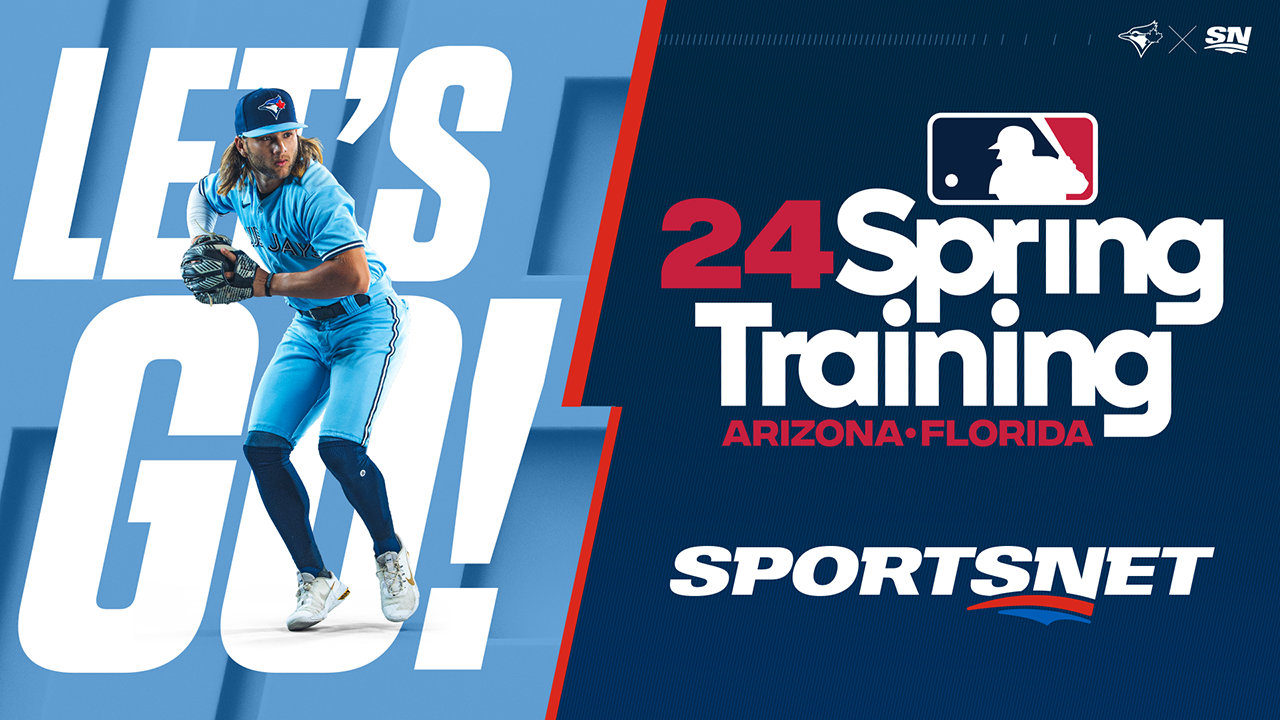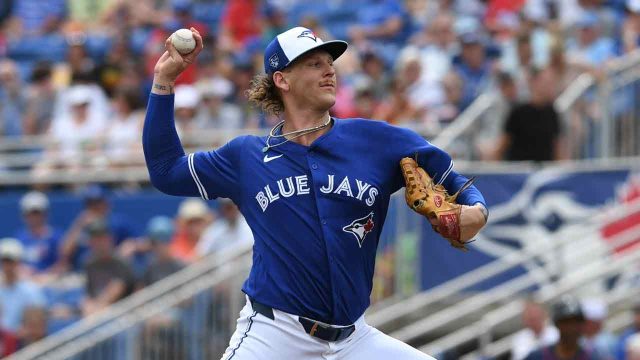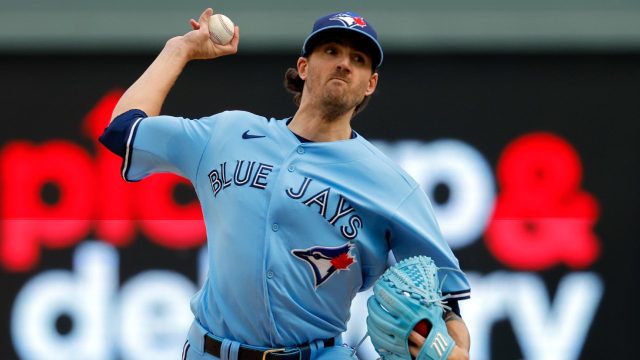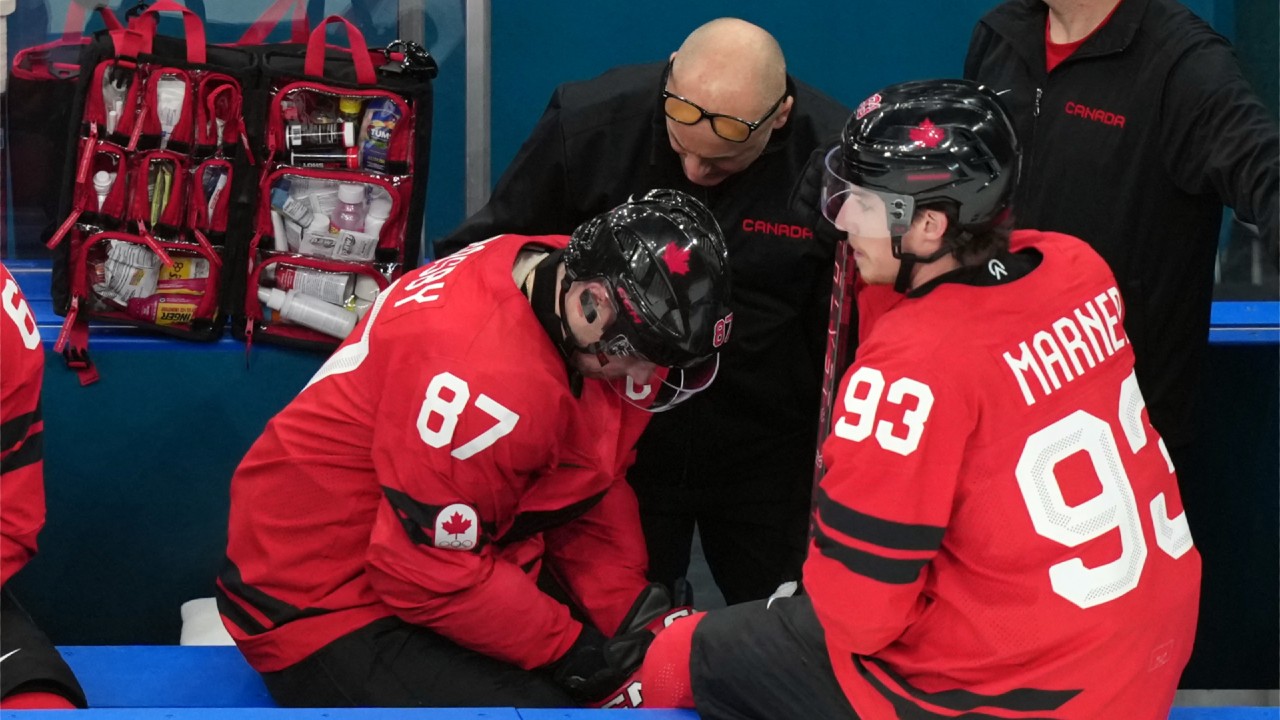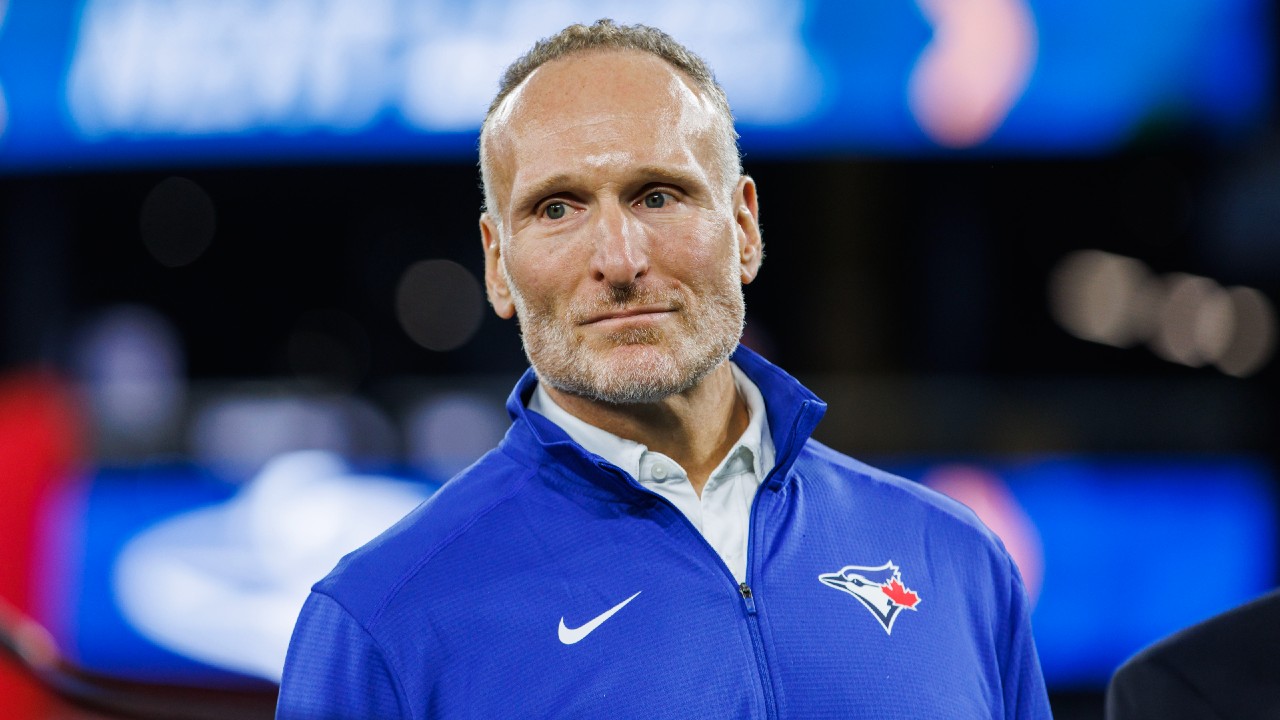
DUNEDIN, Fla. – The second phase of the Rogers Centre renovation, with a price tag for the entire project now pushing toward $400 million, according to Toronto Blue Jays president and CEO Mark Shapiro, accomplishes several things.
From better seating that’s closer to the field and more oriented toward the action in the lower bowl, a better home clubhouse with a batting cage and running track behind the expanded dugout, to new club lounges that will be ready mid-season, as planned, and give the team long-lacking premium offerings, the experience at the 35-year-old dome is being totally transformed.
Perhaps more pertinently, the corresponding impact on revenues “will better support the way we’ve spent the past few off-seasons,” Shapiro said during an hour-long discussion with media Thursday at the club’s Player Development Complex.
“Upper levels of payroll are likely to be where we are or where we have been at,” he later added, an indication he views the club’s current projected 2024 payroll of $247.4 million for Competitive Balance Tax purposes – right between the first and second luxury-tax thresholds of $237 and $257 million – as a sustainable spending ceiling.
Still, Shapiro then added an intriguing caveat, saying, “What I would caution you is to draw firm conclusions on that.”
“Obviously you saw there was a unique business case this off-season where it would have taken us significantly above that,” he continued, referencing the club’s unsuccessful pursuit of Shohei Ohtani in free agency. “For the right player and the right situation and the right moment of our team, there’s always an openness with this ownership. They’ve been unbelievably supportive, whether it’s $400 million for a renovation or whether it’s taking our payroll to unprecedented levels in two years of exceeding the CBT.”
The Blue Jays paid a luxury tax charge of $5.5 million on their 2023 payroll, the first time in franchise history they’d cleared the threshold line, which last year stood at $233 million. Should they add any one of minor-league free agents Joey Votto, Daniel Vogelbach or Eduardo Escobar to the roster, their 2024 total would push toward $250 million with potential room to add mid-season while avoiding the second tax threshold.
As a second-time CBT tax payor, any amount over $237 million is taxed at 30 per cent, with an additional 12 per cent surcharge on overages of $20-$40 million. Teams that spend beyond the CBT threshold, which next year rises to $241 million, in three consecutive seasons are charged a 50 per cent tax on their overages, an interesting wrinkle to remember next fall.
How they proceed once there will only be part of the intrigue for the Blue Jays, who will also face major strategic questions with Vladimir Guerrero Jr., Bo Bichette and Jordan Romano, among several other players, eligible for free agency after the 2025 season.
Barring extensions that lock in their cornerstones, a shrinking competitive window only adds to the stakes this year for a Blue Jays team that’s been to the post-season in three of the past four seasons, missing out on the playoffs by one game in the other.
Despite that, this winter their biggest spend was on righty Yariel Rodriguez, who signed a five-year deal that guarantees $32 million. Isiah Kiner-Falefa, at $16 million over two years, was their only other external multi-year deal, as the $21 million over two years for Chad Green was an option they held and exercised. Justin Turner at $13 million and Kevin Kiermaier at $10.5 million, were their other major adds, all short-term moves that keep the club’s options open longer-term.
Those disciplined and responsible moves are a jarring contrast to the bold ambition of a pursuit of Ohtani, with the barrier to entry reflected in his $700-million, 10-year deal with the Los Angeles Dodgers.
The reason for the wide disparity in approaches, Shapiro explained, “is pretty obvious.”
“Ohtani is a very unique case that generates revenue and extreme levels of performance, like number of wins, beyond any other player,” he explained. “Easier to justify that expense. Still an extensive conversation with ownership, not a simple process, unbelievable amount of time spent kind of walking through that. Without him, it’s a conventional off-season.”
That conventional off-season produced the above moves after “a rigorous, thorough examination of what the potential strategies could be,” with that fivesome essentially replacing departed free agents Matt Chapman, Hyun Jin Ryu, Whit Merrifield, Brandon Belt and deadline add Jordan Hicks.
In that way, the Blue Jays’ winter was about maintaining their floor while betting on internal improvements to make them a better team this year than they were a year ago, with Shapiro saying, “We just took the best strategy we could build based upon the players in place.”
“I’m not sure how you examine the alternatives – do you just trade a whole team away and try to recreate a team?” he said. “We’re not playing Strat-O-Matic baseball. We’ve got a strong core in place, so we doubled down in the belief of our own players and still added – we added $50 million dollars in payroll. … But the core of this off-season, without a doubt, was built upon the belief in our players.”
To that end, the strong camps thus far by Guerrero, Alejandro Kirk, George Springer and Daulton Varsho bode well for the Blue Jays. But for a team that made major moves in each of the previous four off-seasons – Ryu in 2019-20, Springer and Marcus Semien in 2020-21, Kevin Gausman, Yusei Kikuchi and Matt Chapman plus the Jose Berrios extension in 2021-22 and Chris Bassitt in 2022-23 – this conventional off-season, in a free-agent market not ideal for their needs it should be noted, was different than the others.
“I do understand and sympathize that from maybe some media and from a fan perspective, core-avid-fan perspective, off-seasons are won or lost by sensationalism, by big names. In my career, teams that win the off-season don’t often or sometimes don’t win the regular season,” said Shapiro. “We’re not picking names out of baseball cards. We’re building a team. And we felt like the depth of experiences, the commitment of our own guys along with just the talent, we believed in our guys. That’s the bottom line.”
One with far-reaching implications across the board no matter how it plays out this season.


